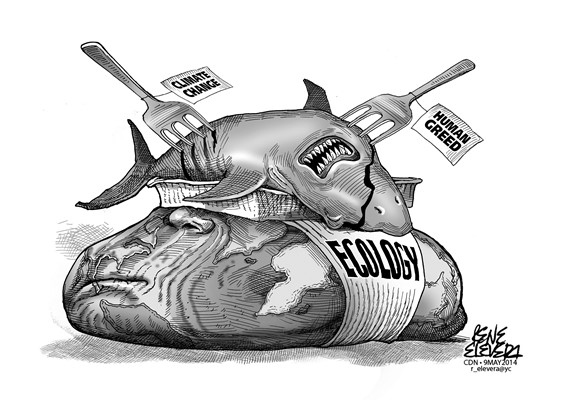A list of the world’s deadliest animals by Bill Gates have been going the rounds in social media recently.
At the bottom of the list of 15 ‘deadly’ animals is the shark. The top two deadliest are mosquitos and humans. Man’s best friend, the dog is even deadlier than the dreaded sharks at fourth.
The fear associated with sharks is a myth borne out of the lack of knowledge on the behavior of these large fishes.
Yes sharks are apex predators or animals that are on top of the food chain, but that does not necessarily make them bad.
One of the roles of sharks as the ocean’s apex predators is to keep populations of other fish species in proper proportion for their ecosystems. They keep our oceans healthy.
The Philippines is a signatory of global agreements for the conservation of threatened species. The International Union for the Conservation of Nature keeps a list of threatened species. The IUCN Red List of Threatened species have listed in various levels of threat to extinction the sharks that have hit the pages of Cebu Daily News lately.
The scalloped hammerhead sharks came into our consciousness lately when photos of its juveniles lying in a market stall in Daanbantayan town in northern Cebu spread in social media and published by the CDN. The story of thresher sharks which is endemic in the seas of northern Cebu scandalized our senses when it was found out that they are open prey, butchered in Talisay City, and some of its meat end up as main ingredients of the popular street food – fish balls and tempura.
Sharks are hunted to near extinction not because they are dreaded sea monsters. Human appetite it turns out are the main threats to these animals or any wildlife. International trade of shark meat is fueled by demand for shark fin soup in restaurants around the world.
Although there are a few laws and regulations that protect threatened marine life like the manta rays, whale sharks, marine turtles, but there are also a lot that needs legal protection like the sharks.
The Bureau of Fisheries and Aquatic Resources (BFAR) which is mandated by the Fisheries Code of 1998 (Republic Act 8550) to ensure the “Conservation, protection and sustained management of the country’s fishery and aquatic resources,” cannot wash its hands. So are the Dept. of Environment and Natural Resources (DENR) and local government units.
Republic Act 9147 or the Wildlife Resources Conservation and Protection Act of 2001 mandates the government to “determine whether any wildlife species or subspecies is threatened, and classify the same as critically endangered, endangered, vulnerable or other accepted categories based on the best scientific data and with due regard to internationally accepted criteria…)
How come, until now, despite the listing of the above-mentioned species in the Red List of the IUCN, no national regulation to protect the species 13 years after the enactment of RA 9147 and 15 years after RA 8550.
The country is truly blessed with one of the world’s richest biodiversity. Biodiversity needs to be protected as part of our national patrimony.
Enough talk already, time to act was yesterday. Failure to protect these wildlife species is treason.
Disclaimer: The comments uploaded on this site do not necessarily represent or reflect the views of management and owner of Cebudailynews. We reserve the right to exclude comments that we deem to be inconsistent with our editorial standards.

